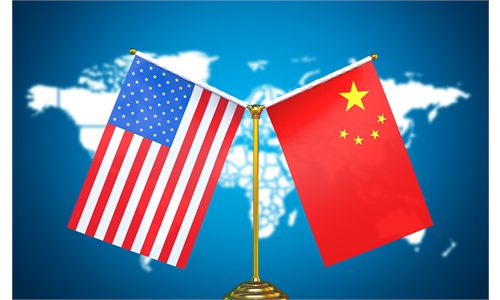Foreign officials, guests and exhibitors expect to strengthen global supply chains at 2nd CISCE
A recent article in The New York Times accused China of waging so-called supply chain warfare by sanctioning the American drone company Skydio. The article also mentioned a Global Times editorial titled "US company sanctioned by China 'cries out in pain,' tearing off American façade," but it failed to acknowledge that Skydio was sanctioned by China due to its involvement in US arms sales to Taiwan island. Inventing new terms to exert the discourse hegemony and label other countries, including China, is a typical tactic employed by some US media and think tanks.
Currently, the second China International Supply Chain Expo (CISCE) is being held in Beijing, attracting over 620 companies, institutions, and international organizations, a 20 percent increase from the inaugural expo. One notable feature of this year's expo is the joint exhibition booths set up by Chinese and foreign companies.
For example, Apple and its Chinese suppliers are exhibiting together; German company Bosch, Chinese electric vehicle maker Xpeng, global mining and materials company Rio Tinto, and China Baowu Steel Group are showcasing their collaboration in an industrial chain partnership; and New Zealand dairy giant Fonterra is displaying its green agriculture supply chain alongside Chinese partners. Clearly, these companies want cooperation. None of them would agree with The New York Times' claim that China is waging "supply chain warfare."
The supply chain emerged alongside global industrial division and cooperation, serving as a "win-win chain" that benefits all countries. The successful hosting of the CISCE is a strong testament to this. Tim Cook, the CEO of Apple, who appeared at this year's CISCE, praised the event, saying "I think it's a very great expo, a tour de force of innovation."
In fact, since the 1990s, economic globalization has developed rapidly, significantly reducing the costs of multinational collaboration. Many companies have enhanced the quantity and quality of supply chains through the global division of labor, outsourcing, and cooperation, maximizing the comparative advantages of various countries while also increasing employment and enhancing people's well-being.
However, a few countries, such as the US, have initiated "supply chain warfare," transforming the "win-win chain" into a "blockade chain" and a "confrontation chain." This has caused disruptions and damage to the originally smooth-running global supply chain. These countries narrowly view trade deficits as "losses," forcibly swaying public opinion, and attempting to reverse so-called "unfair trade" through imposing additional tariffs. The ultimate result is that domestic consumers pay higher price.
A few countries feel uneasy and anxious about China's rising status in the global supply chain, which has led them to strengthen control over key technologies, critical resources, and essential links. They artificially politicize and weaponize the supply chain, promoting "decoupling," building "small yard, high fences," and abandoning international cooperation based on the resource endowments and comparative advantages of various countries. They enforce the "de-sinicization" of multinational companies' supply chains and reduce their own dependence on Chinese products. As a result, the institutional costs of supply chain cooperation are continuously increasing, undermining the original advantages of high efficiency and low costs, while adding more and more uncertainty and instability.
The reason the supply chain is referred to as a "win-win chain" lies in the fact that it is not merely a simple accumulation of independent links, but rather a complex system that is tightly interconnected and interdependent, formed over a long period of time through the collaboration of various countries, enterprises, talents, technologies, and regulations. Just as the skeletal and nervous systems of the human body are the cornerstones of sustaining life, every link and component of the supply chain is an organic part of the normal functioning of the global economy. Once this organic structure is damaged, it is akin to a broken bone or dislocated joint in the human body, and the difficulty of repair far exceeds the superficial loss. When the global supply chain experiences "dislocation" due to political interference, many long-accumulated structural advantages cease to exist. Although the supply of certain products or resources can be restructured, the deep cooperative relationships formed historically are difficult to repair. Furthermore, the rupture of a single link can trigger a chain reaction, leading to the accumulation of systemic risks in the global economy.
The supply chain belongs to the world, not to any single company or country, and it should not be used as a weapon. In the era of economic globalization, only by adhering to open cooperation in global industrial and supply chains can we achieve win-win development. China is committed to promoting the establishment of an open world economic system and maintaining the stability and smooth operation of global industrial and supply chains. It is not only a participant and beneficiary of the global industrial and supply chain cooperation but also a steadfast defender and builder of economic globalization. Those who claim that China is waging "supply chain warfare" have got the wrong playbook.









